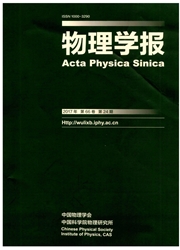

 中文摘要:
中文摘要:
金属玻璃在其过冷液相区内表现出随着温度升高黏度逐渐降低的特性,因此可以对其进行热塑性加工.该性质颠覆了传统金属的加工成型方式,使得其在远低于传统金属材料加工的温度和应力作用下可以按照人们的要求进行成型.因此,一些具有低玻璃转变温度的金属玻璃又被称作金属塑料.另外,由于金属玻璃是一种无序结构材料,不存在位错、晶界等晶体缺陷,且热膨胀系数小,在热塑性成型中具有优异的尺寸精度,因此被认为是理想的微成型材料,有广阔的应用前景.本文系统介绍了金属玻璃的热塑性成型性质及其应用,从热塑性成型的基本概念出发,阐述了金属玻璃热塑性成型能力的评估指标、热塑性成型技术、热塑性微成型及其理论、热塑性微成型的应用等,对认识金属玻璃的热塑性及扩展其应用有重要的意义.
 英文摘要:
英文摘要:
The viscosities of metallic glasses gradually drop with temperature rising in their supercooled liquid region (SLR) which enables them to be thermoplastically formed and totally overturns the processing method of traditional metallic materials: their forming can be realized under temperature and stress far below those of traditional metallic materials. Based on this property, metallic glasses are considered as the ideal miniature fabrication materials due to their unique amorphous structures and no crystalline defects such as dislocation and grain boundary. The thermoplastic micro forming of metallic glasses in their SLR is studied in the present paper. A universal equation which describes the filling kinetics of viscous metallic glasses in the non-circular channel is proposed with the help of fluidic mechanics, and the results may be theoretically useful for the micro application of metallic glasses. In addition, some applications in the micro thermoplastic forming of metallic glasses are introduced. A metallic glass mold insert for hot embossing of polymers is fabricated by the micro thermoplastic forming of metallic glass, and it is found to have many advantages in mechanical property, fabrication efficiency, surface quality, etc. compared with the traditional materiM and method. A similar approach is used to fabricate gratings, which may provide a new material and technology to produce gratings. The superhydrophobic metallic glass surface with excellent abrasion and corrosion resistance is also fabricated by constructing micro-nano hierarchical structures on metallic glass surface. The bulk metallic glass micro fuel cell is also finished and found to have good performance.
 同期刊论文项目
同期刊论文项目
 同项目期刊论文
同项目期刊论文
 期刊信息
期刊信息
